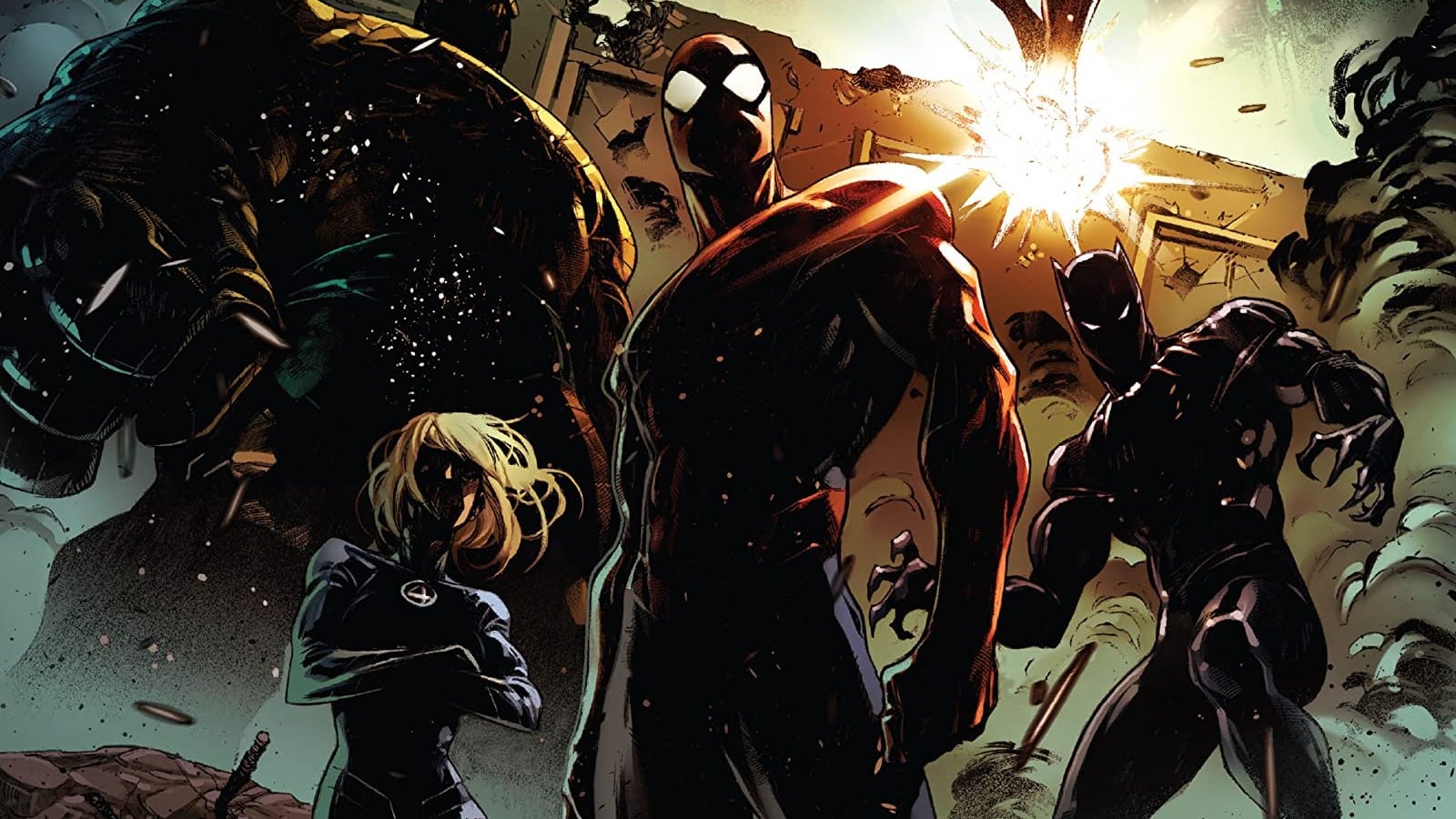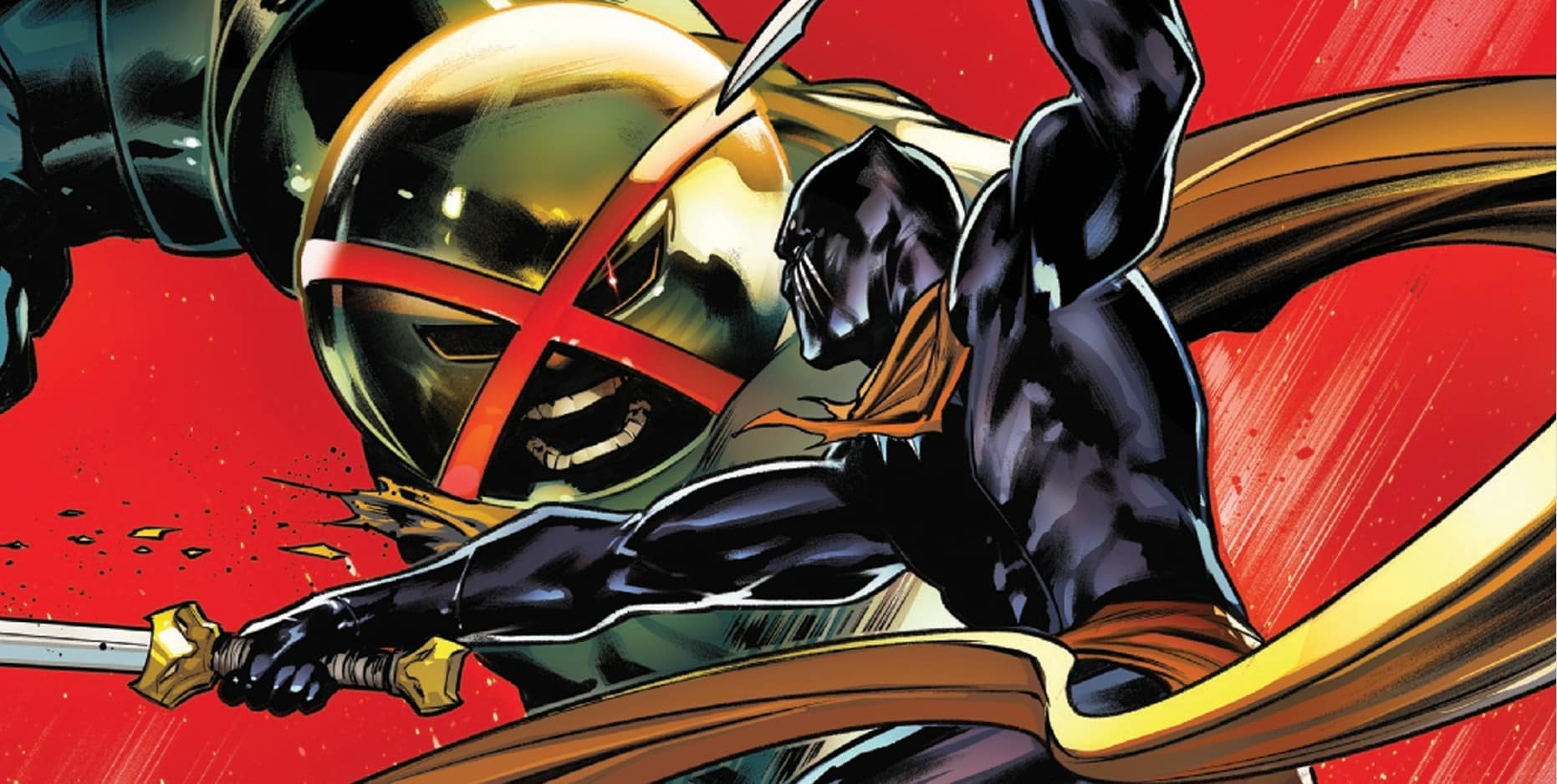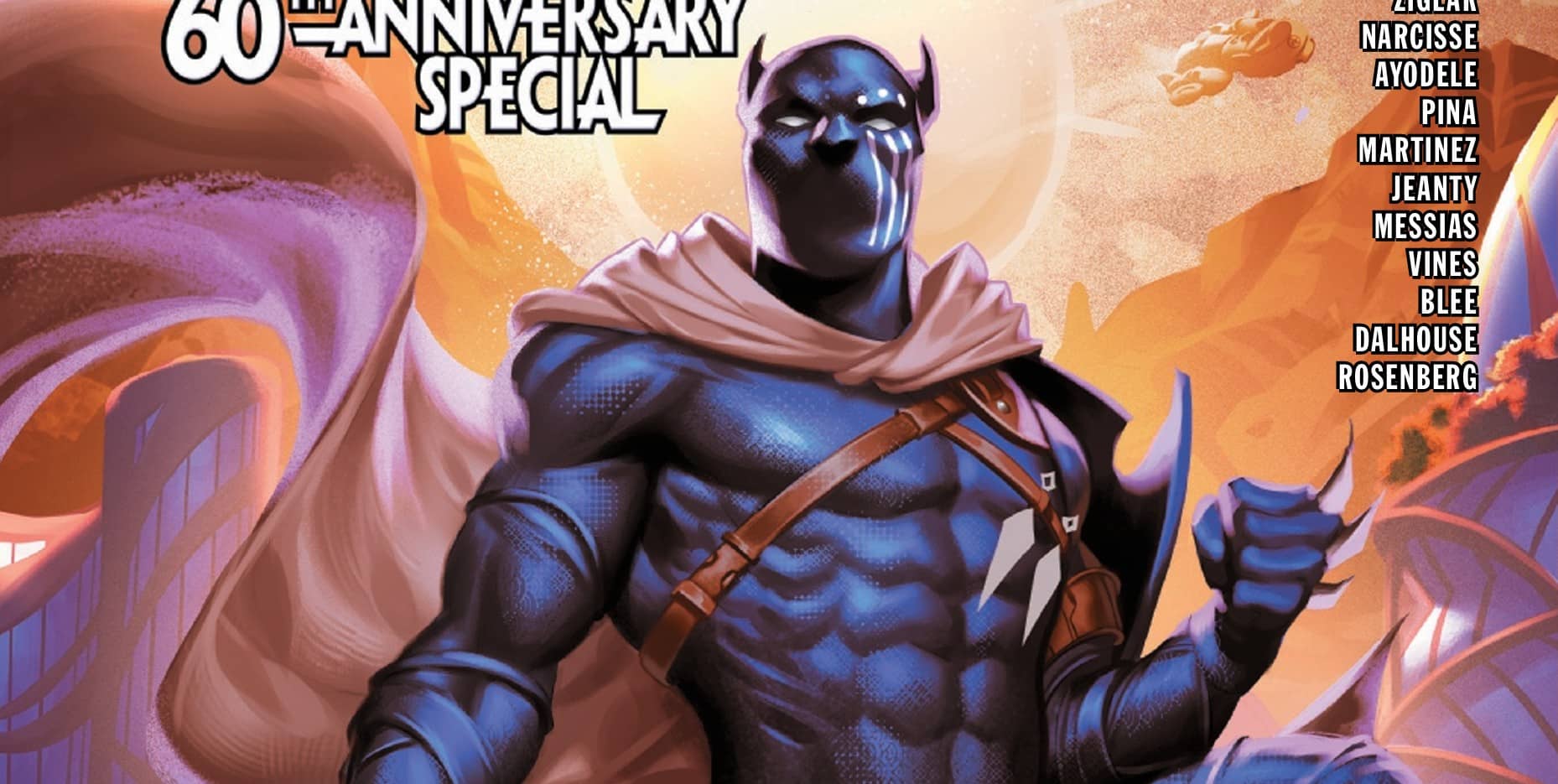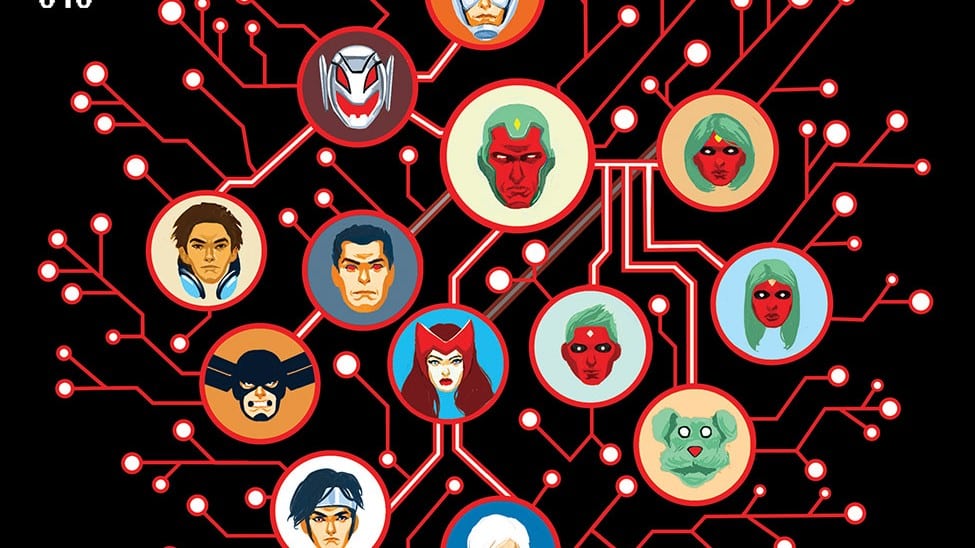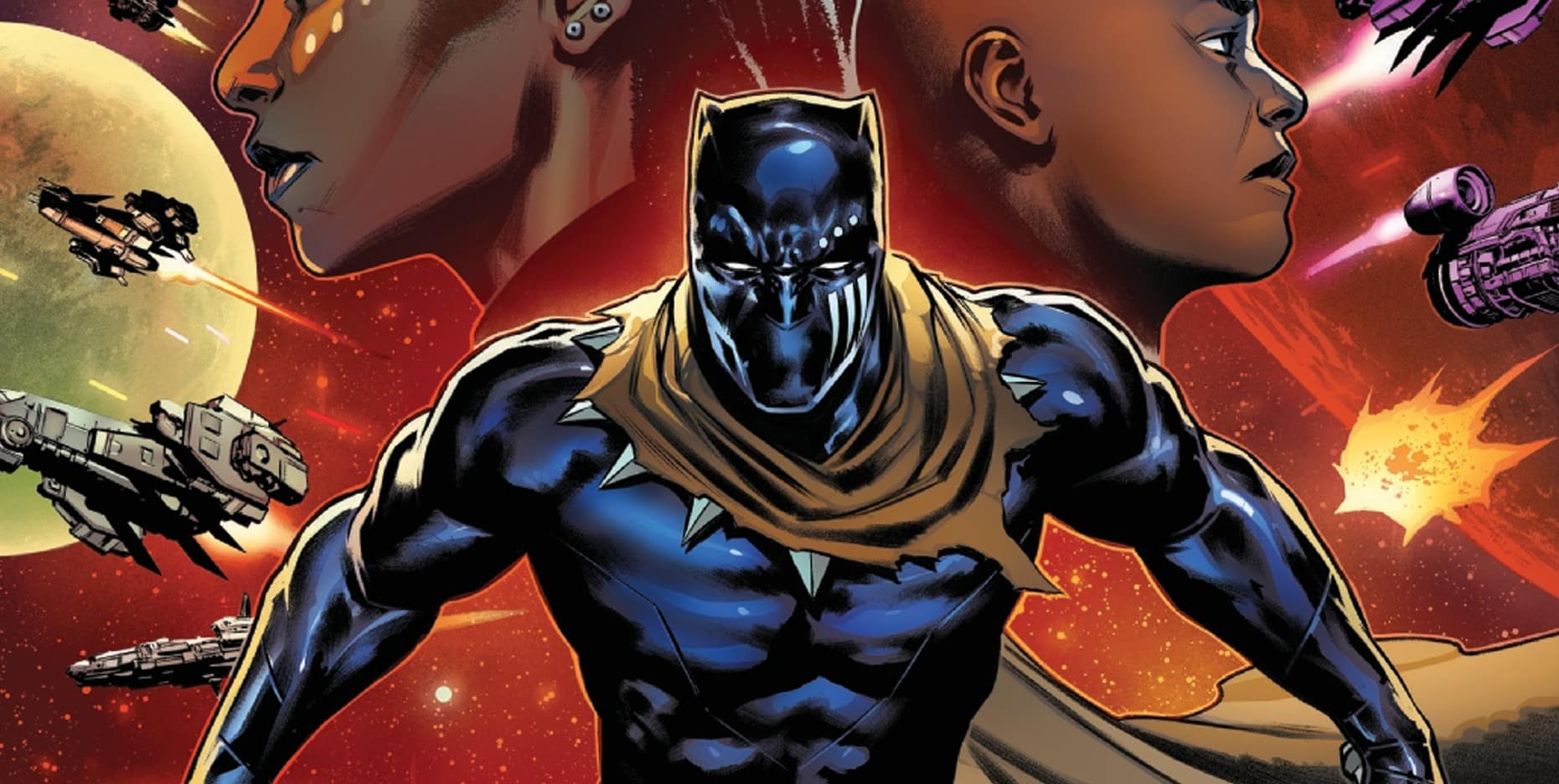What happens when the lights go dark? Tom Taylor, Iban Coello, Brian Reber and Joe Sabino answer that in Dark Ages #1.
Ask any American parent what their child’s favorite food is and two answers will repeat more than any other: chicken nuggets and macaroni & cheese. There’s nothing wrong with these meals, per se. They are a simplistic version of fried chicken and pasta, two dishes that can be complex and creative, worthy of being served at fine restaurants and Sunday dinners alike. But in the form that children crave them, they are simple, inoffensive meals that the young’uns will eventually grow out of once their taste buds expand and adolescence exposes them to the wonderful, weird world of flavors.
Now imagine, if you would, that a child never went further in their culinary experience. They continued on dates, at business dinners, on holidays, to eat nothing but McNuggets and Kraft blue box. That farce is the reality for the American comics fan1; they grow up on cartoons and action figures and blockbuster movies and feelings of inferiority and never challenge their tastes as they get old enough to worry about 401Ks and prostate exams. They are satisfied with the same bland, childish stories and never want to grow past it.
Dark Ages #1 by Tom Taylor and Iban Coello is a comic for them.
This is an alternate reality apocalypse story where superheroes, normally shielded by their IP value, can die. This is where the status quo no longer matters. Where the light can rage against the darkness, even as the darkness seems to overcome it. Taylor is no stranger to this concept. He first came to attention with the comic prequel to Injustice: Gods Among Us, a book that shares more than a little DNA with Dark Ages. He further cemented his position as the master of doing this exact thing in DCeased. These three titles could have come from the same MadLibs prompts. It may be lazy criticism to point to these titles as the most obvious comparison, but it’s also lazy to write the same comic three times in the same decade.
Coello brings a familiar flavor to the title, one comics fans should appreciate. There’s more than a hint of Todd McFarlane in his work with the exaggerated figures and joyfully cartoony expressions. However Coello trades the crosshatching for a cleaner render, preferring to let colorist Brian Reber add depth and dimension to the work. The panelling feels modern, and the book feels the most alive when his figures frequently break and bleed through the structure. It’s familiar comics work but well executed.
Taylor’s dialogue is comfortable as well. He’s excellent at the quick, quippy, Marvel Cinematic Universe patter that keeps folks around the world entertained. If anything, that sense of voice is recognizable here because it’s the only real voice in the comic. In a very Bendis-ian tradition, these dialogue balloons could connect to any of the subjects on the page. The epic stakes feel small since we have no character connection to anchor them outside of our memories of the Spider-Man underoos we used to have. You are expected to care about the Fantastic Four because you’ve always cared for them, not because the book gives you a reason.
I’m being harsh here. I am. This isn’t a technically poor book. In fact, it is quite decent. It’s also safe. It’s a milquetoast writer and a house artist taking a concept that has been commercially successful twice before at the Distinguished Competition2 and slapping a different coat of IP paint on it. It’s the most boring possible project for Marvel to be putting out. It isn’t that the House of Ideas is creatively bankrupt; they can put out fantastic and innovative titles when they want. But this right here? This is simply boring.
Marvel has fired up the microwave and thrown in some nugs and instant mac. Dark Ages is going to be popular, it’s going to be praised and it’s going to fill comics fans with empty calories. I’m reminded of Paul’s first letter to the church of Corinth3 “When I was a child, I talked like a child, I thought like a child, I reasoned like a child. When I became a man, I put the ways of childhood behind me.4” If Dark Ages is anything, it’s a reminder that comics fans need to grow up.
- Yes, the market of people who frequently read sequential art is not exclusively superhero fans. That said, we all know what I am talking about here. If you are someone who has a wider range of taste and is upset by my reductive description, congratulations, I’m not talking about you. If you are someone who doesn’t have a wide range of taste and are upset that I’m not counting all the other pieces of sequential art that don’t have the same culture around them as the direct market comics sphere, try reading those other books.
- DC Comics. Which frankly, is just as guilty for wanting Taylor to do Injustice but without the Mortal Kombat dudes getting a cut of the profit.
- 1 Corinthians 13:11, the NIV translation of The Bible
- Before you retort with that CS Lewis quote, I want you to imagine telling Mere Christianity writer Clive Staples Lewis that you were using his words to refute The Bible.
Zachary Jenkins co-hosts the podcast Battle of the Atom and is the former editor-in-chief of ComicsXF. Shocking everyone, he has a full and vibrant life outside all this.

